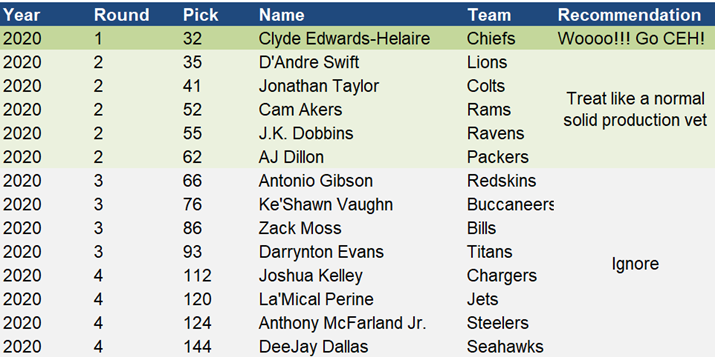
Should I draft a rookie running back?
Every year, fantasy owners go bananas for rookie running backs. Fresh blood! It’s a plug-and-play offense for a running back with any talent (cough: KC; cough: Seattle). But, does this strategy make sense? For every Saquon Barkley, we get a Rashaad Penny. Especially when some rookies go as high as round 1 and round 2 in your fantasy draft.
So, what should you do?
How do rookie running backs perform vs veterans?
Let’s look at a long time horizon to get a big set of data – the 2001 season through the 2019 season. Let’s also ignore running backs selected in rounds 5 through 7 of the NFL draft – many turn into great players over time, but there are a lot of them and any fantasy selection would be a total dart through (i.e. not worth the pick).
We can compare the remaining rookie running backs selected in rounds 1 through 4 to veterans, but we also want a similar cut in place so that we’re not comparing incoming rookies to 4th string players. So, let’s only look at veterans who scored at least 5 points per game on average the prior year (throwing out week 17 and averaging the remaining 15 games – if a player was injured and didn’t play, their average goes down). Outside of some unusual cases, we should have a pretty good representation of veterans who might get drafted to fantasy teams.
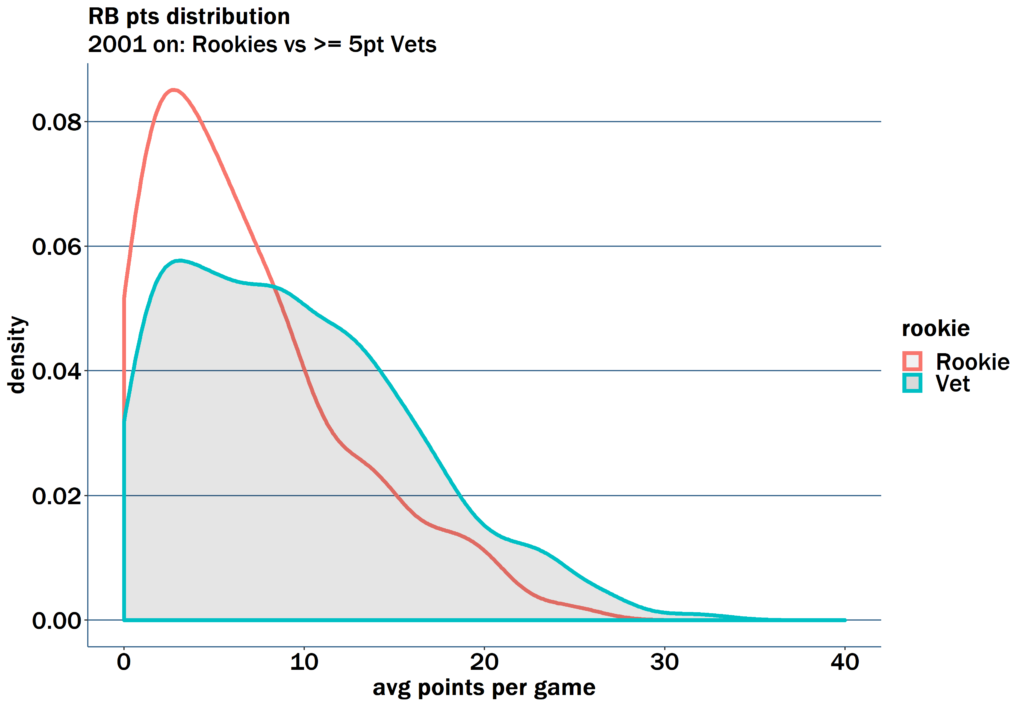
With these rules in place, what do we see? We see that veteran running backs perform much better on average than rookie running backs. The average points per game is higher and the upside is higher.
The results are pretty intuitive – veteran running backs have given us a better read on performance than rookies – but are there any pockets of rookies where we see top fantasy running backs consistently?
How does rookie running back performance vary by round?
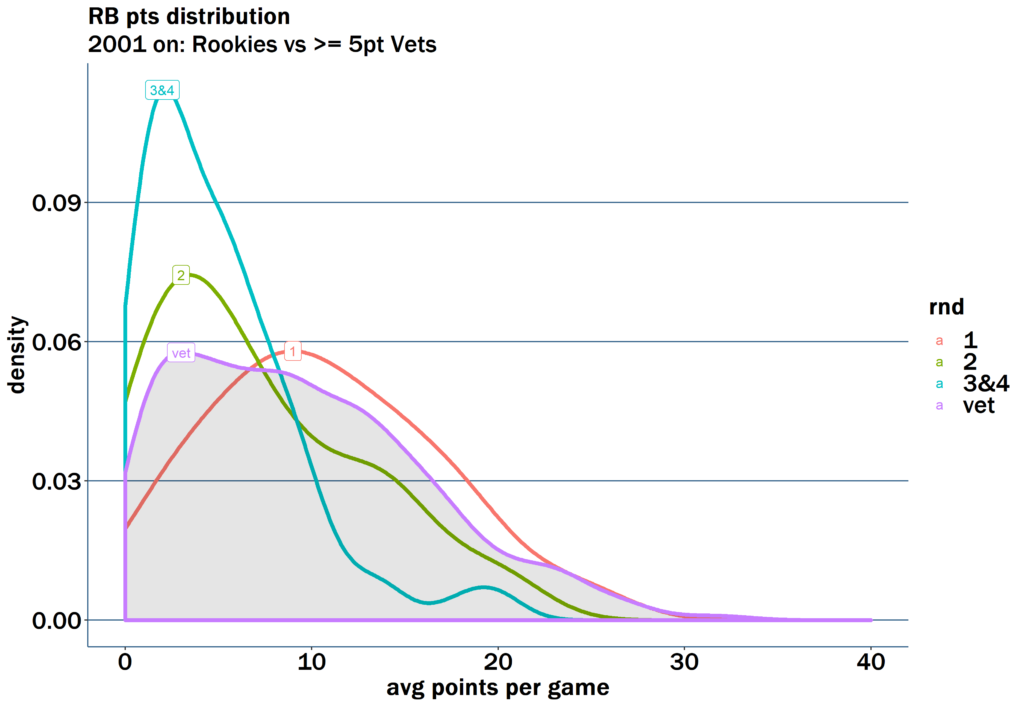
When we break out performance by the NFL draft round each rookie was selected, we see some clear trends appear.
To be expected, round 1 performs better than round 2 and so on. The difference between the rounds, though, is pretty staggering. Rookies drafted in the 1st round of the NFL draft perform MUCH better than their round 2, 3, and 4 counterparts. The 1st rounders also perform better than the vets! This is pretty cool and indicates we might prefer a 1st round rookie over an average veteran and we actually have the potential here to hit on some high end production comparable to vets. The 2+ rounders, though? Not so much – there is some chance that we’d hit on a high end fantasy player in their rookie year, but they are worse on average and have more downside risk than the vets. Rounds 3 and 4? Steer clear.
Interesting so far. 1st round rookies? Yeah, do it. But, NFL circa 2001 doesn’t necessarily relate to the NFL today. The game is different, shorter shelf life for RBs, more pass-centric offenses, the dreaded running back by committee is more prevalent, and on and on. What if we only look at 2012 on? What do we see?
How has rookie running back performance changed over time?
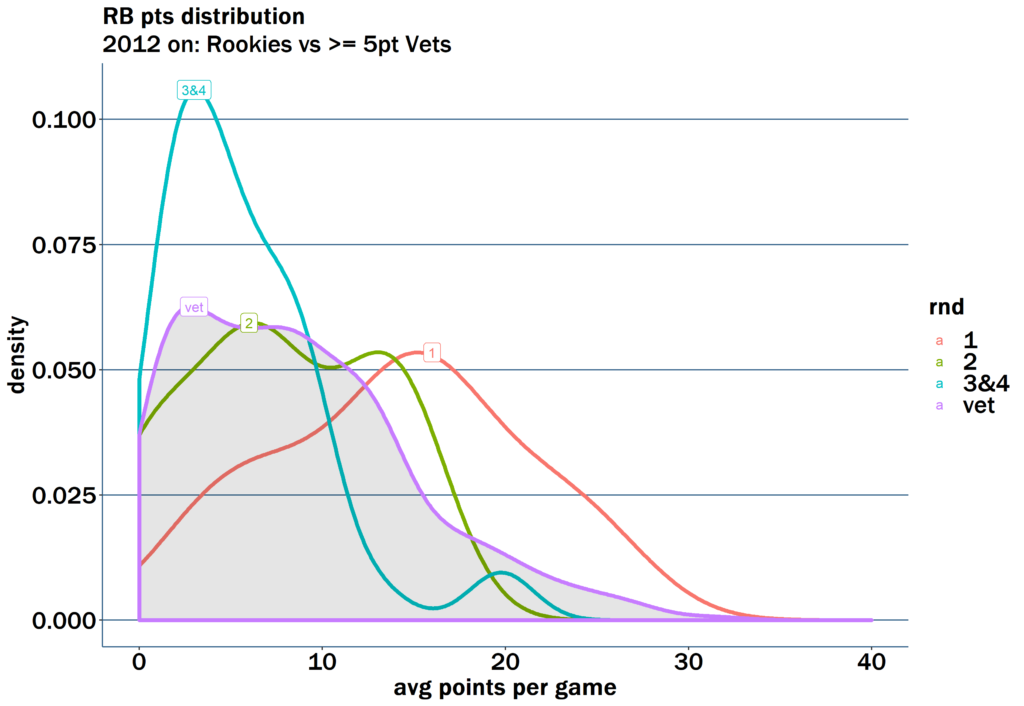
Yes! Big time. When we limit to the more recent NFL seasons, 1st round rookies look much, much better than the average vet. And, 2nd rounders now outperform the average vet (less upside, but better than the average vet).
What’s going on here? I think something pretty intuitive. We’ve seen the running back position in the NFL trend younger over time due to scheme changes and rookie wage scale changes. Veterans aren’t getting big deals (and when they do, they don’t live up to them *cough* Todd Gurley *cough*). More and more, NFL teams seem happy to let good veterans exit in free agency planning to draft and replace the production easily with a rookie. And they do! The rookie production is there and very tempting for fantasy owners.
Okay, so first round rookies look to be pretty productive and valuable. Round 2 rookies look fine. Again, round 3 and 4? Don’t do it. But, what if we get pickier with our veteran running backs? Let’s say our draft strategy is to focus on the running backs with better production in the prior year and not to take fliers on bounce back years or to pick up the crumbs in late rounds of the fantasy draft?
Rookie running backs vs ‘the better’ veterans
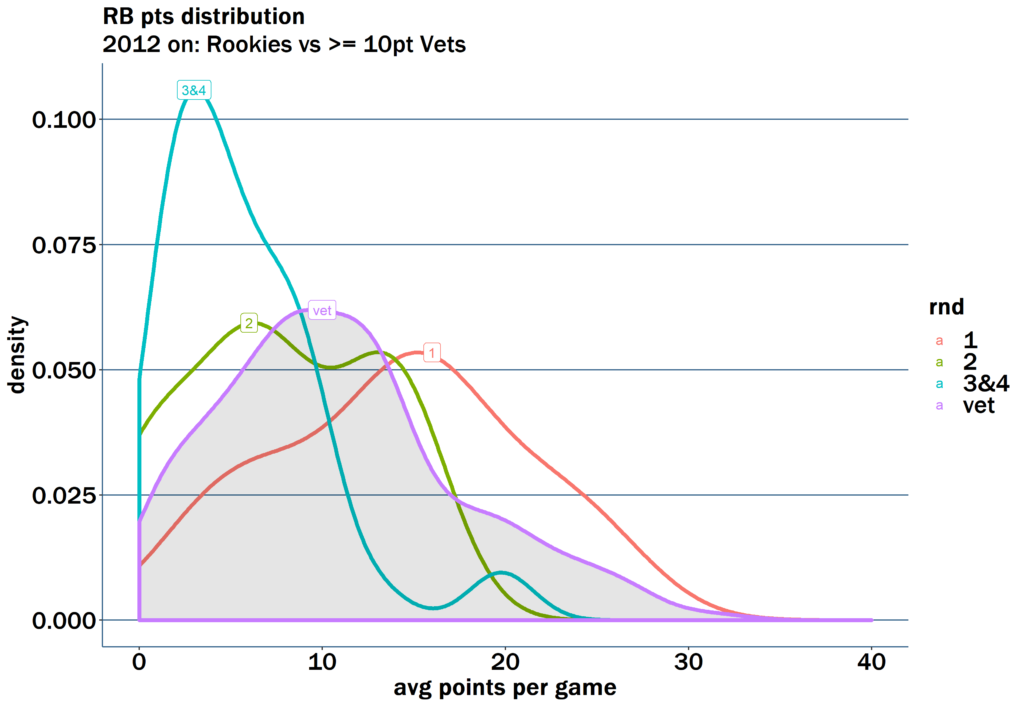
Let’s limit our veteran running back threshold to those back who scored 10 or more points per game the prior year. These should be the backs going in the top 7 or 8 rounds of a 12 team fantasy league.
With the tighter veteran threshold, we see veteran running back performance improve pretty meaningfully. The average points scored goes up and our downside risk goes down. 1st round rookies continue to outperform the veterans, but 2nd rounders are now looking a bit worse on average vs a veteran, with more downside risk and without the high upside tail of the vets.
Which veterans are comparable to first round rookie running backs?
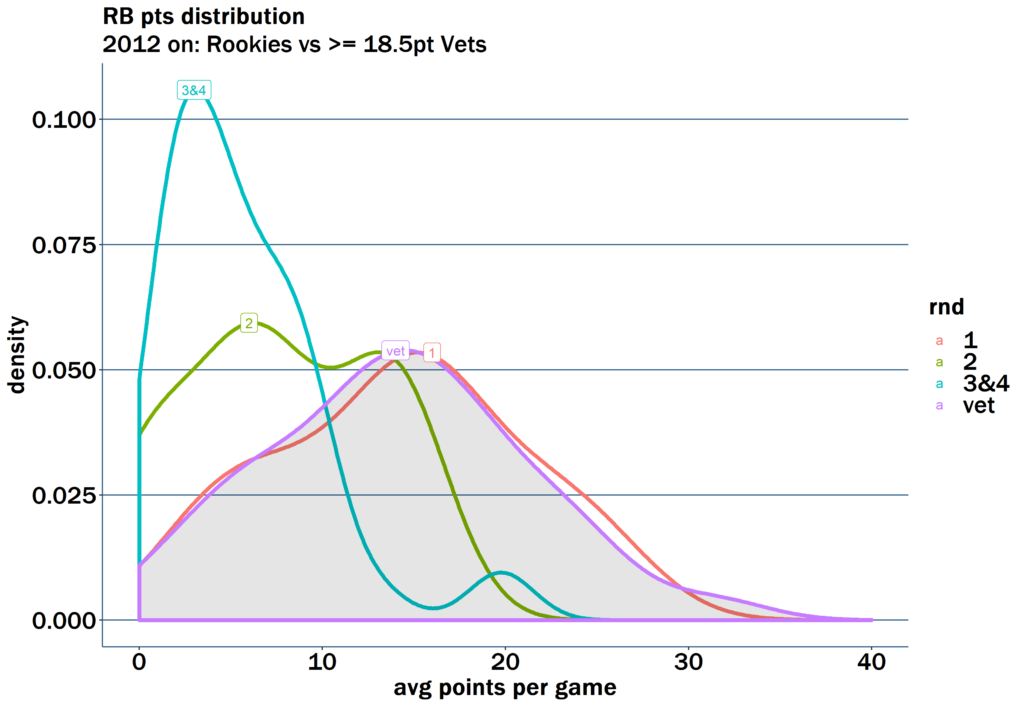
If rookie first round running backs are so good, it begs the question “how good do the vets need to be in order to be comparable to the rookie fantasy production?”. The answer is that 1st round rookies are comparable to veterans who scored 18.5 point per game on average the previous year! Astounding really.
This view of the world puts 1st round rookies in pretty elite company. Drafting a rookie running back in the second round (or even the first round) of your fantasy draft seems reasonable with this information… at least as reasonable as it ever is drafting a running back early in your fantasy draft (gasp!).
Who are the recent first round rookies?
Wondering who the recent first round rookies are? Studs and duds below.
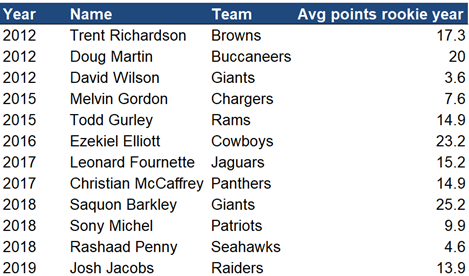
Now, back to my hunch…
So, are rookie running backs worth drafting? My hunch heading in was that “no” they aren’t. They tend to be overvalued by fantasy owners, they don’t produce immediately, and on and on. Turns out, first round rookies are really valuable. Really. Second rounders? Pretty good, but not early picks. Third and later? Don’t waste your time.
What this means for you
Heading into the 2020 season, you should treat the first round rookie running back (there is only 1 this year) like a top flight RB and the second round backs (wooo, a bunch!) like an average ‘good’ vet.
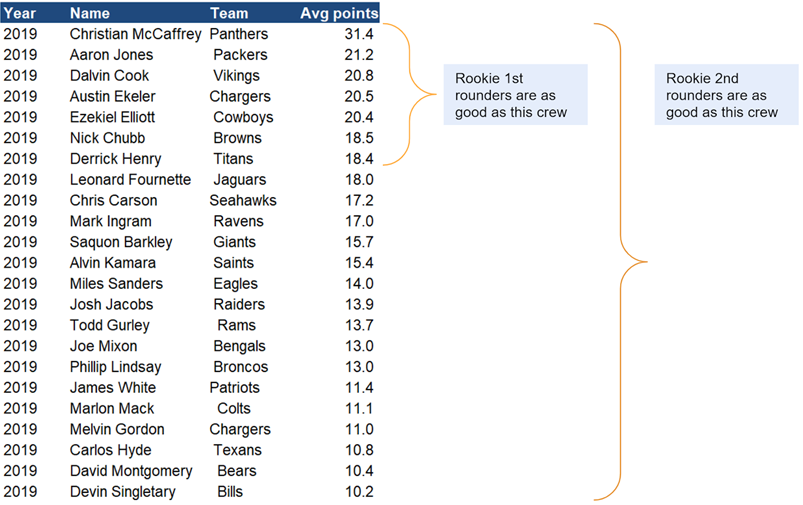
Who are the rookie running backs heading into the 2020 NFL season?
